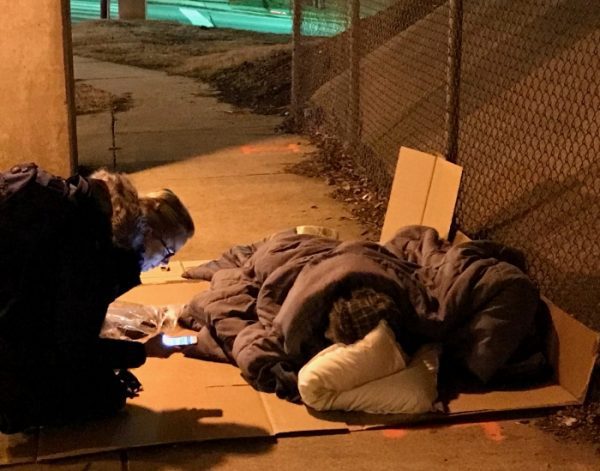A new local racial equity analysis tool highlights disparities in homelessness

In January 2019, the U.S. Department of Housing & Urban Development (HUD) released a Continuum of Care (CoC) Racial Equity Analysis Tool to help communities across the United States understand who is accessing local CoC systems and what outcomes are being achieved.
Mecklenburg County Community Support Services, in partnership with UNC Charlotte Urban Institute, adapted the tool for use by the Mecklenburg CoC. The tool June 20, on the on the Housing & Homelessness Dashboard.
This blog post provides an overview of the new tool and how our community can use it to promote equity and inclusion in the provision of housing and homelessness services.
Racial disparities in housing and homelessness
According to local Point-in-Time Count data, 77 percent of people experiencing homelessness in the Charlotte-Mecklenburg Continuum of Care (CoC) are black. American Community Survey data indicates that only 31 percent of the general population in Charlotte-Mecklenburg is black. Of those persons, 46 percent have annual incomes that are below federal poverty thresholds. These local data are consistent with other community and national poverty and homelessness data which demonstrate that persons of color experience homelessness rates that exceed their respective rates of poverty. Such data indicates that poverty alone is not sufficient to account for the inequity in homelessness rates we see among persons of color.
Recent research from the Center for Social Innovation initiative Supporting Partnerships for Anti-Racist Communities (SPARC) posits that centuries of systemic and institutional racism, including discriminatory and segregationist policies and practices in housing, finance, education, employment, health care, and criminal justice have greatly restricted access to opportunities for upward mobility, building wealth, and breaking intergenerational cycles.
These factors not only influence who becomes homeless but also how our homeless services system responds to homelessness. This in turn impacts both how long a person stays homeless and their likelihood of returning to homelessness once housed.
About the new tool
The Charlotte-Mecklenburg Racial Equity Analysis tool allows our community to analyze and visualize racial and ethnic distributions in local poverty and homelessness rates.
The tool serves as a critical first step to focus on the problem and to identify racial and ethnic bias in our community systems and services. At a minimum, it defines the scope of the racial disparities within the homelessness and housing system. The tool lays the foundation for our community to assess equity in programs and systems touched by people experiencing homelessness. Next, we will look at connections to services and housing and the outcomes achieved for clients of all races and ethnicities.
So, what?
A priority for United Way of Central Carolinas is to positively impact equity and opportunity for low-income communities of color. United Way provides grant funding and hosts capacity-building workshops for local nonprofits and organizations focused on improving racial equity and increasing social capital in underserved populations. On Monday, June 17, over 50 participants from the nonprofit community attended Program Evaluation from a Racial Equity Lens, a training which featured Camille Busette of the Brookings Institution. The program provided a deeper understanding of inclusion and equity in the context of homelessness and housing work; how and why to consider program evaluation from a racial equity lens; and sample tools to move toward integrating equity into programming and evaluation. Such an orientation is vital to create system change.
The Racial Equity Analysis Tool is a community-wide tool for agencies to integrate racial equity into their programming and evaluation. The tool can also be used to provide system level, baseline data. This data should inform racial equity benchmarks in the community’s strategic plan to ensure that homelessness is rare, brief, and non-recurring and that everyone, regardless of race, has access to housing.
Mary Ann Priester and Courtney Morton, Mecklenburg County